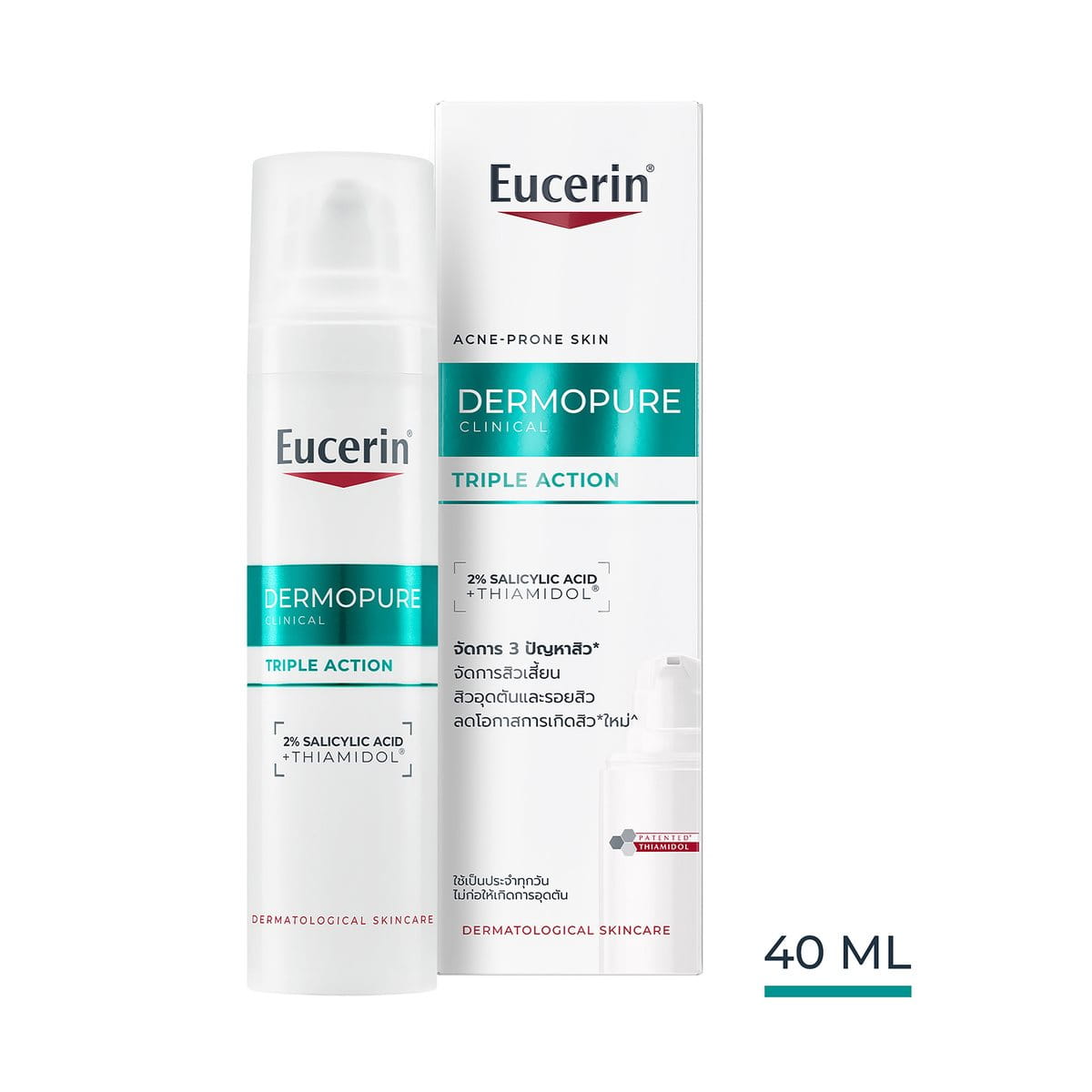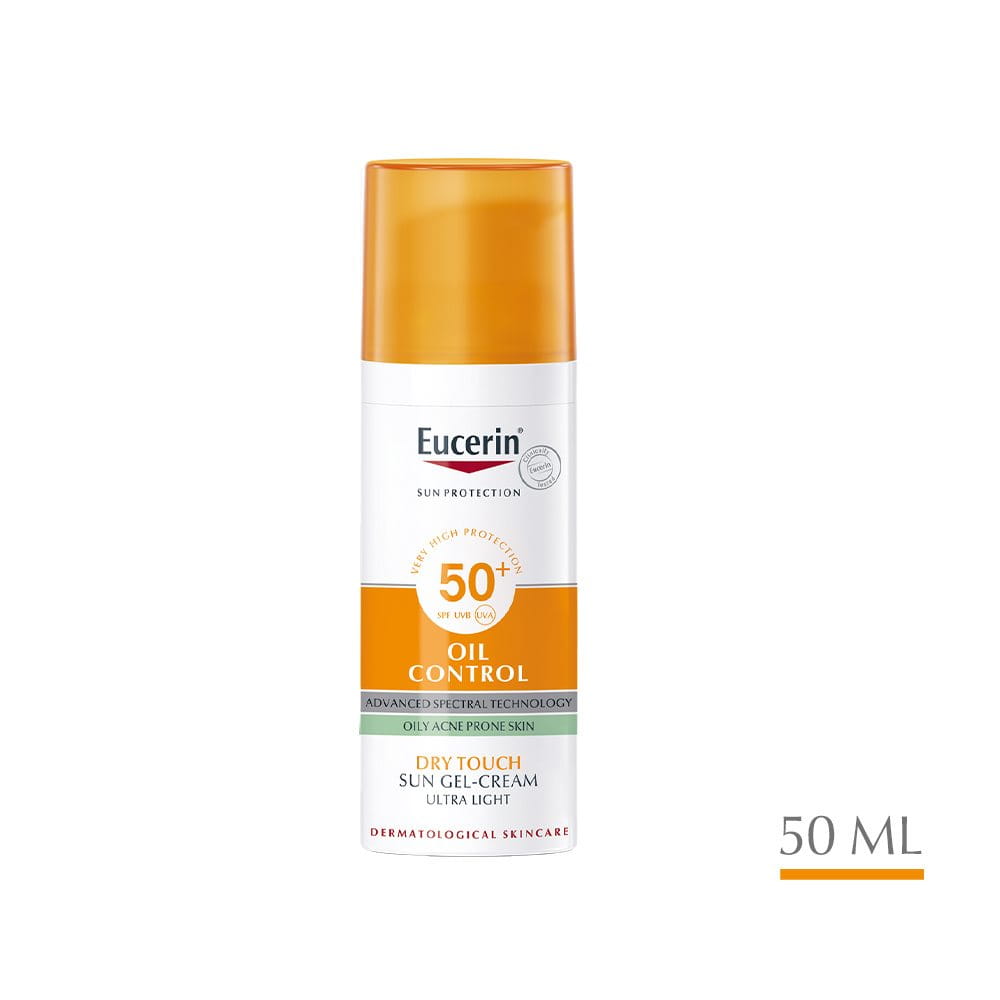All skin needs sun protection, but this article explains why oily and acne-prone skin needs special sun care. It looks at how the sun effects acne-prone skin and recommends how to give skin the sun protection and care it needs.
What is oily and acne-prone skin?
The word ‘oily’ is used to describe a skin type with heightened sebum production. Sebum is produced in skin’s sebaceous glands and is transported to the skin’s surface where it contributes to skin protection. Oily skin is characterized by a glossy shine and enlarged and visible pores. You can find out more about oily skin in skin types and conditions.
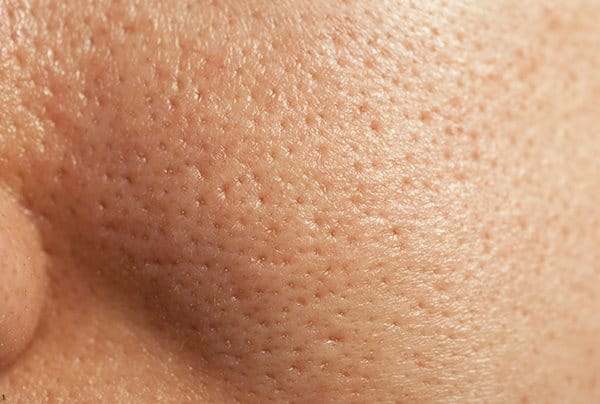
Oily skin is prone to comedones (blackheads and whiteheads) and these can lead to acne . Acne is a non-contagious skin condition where pimples appear on the face and frequently on the neck, shoulders, back and chest too. You can find out more about the causes of acne and how the condition develops in what causes blemishes and how do they develop into acne? Acne is most common in adolescents, but symptoms can persist into, or first appear during, adulthood. Read more in the different types of acne.
Why is acne-prone skin particularly susceptible to sun damage?
Sun, in moderation is good for us but overexposure to the sun’s rays can cause both short and long-term damage to all skin types including oily skin. You can read more about the positive and negative effects of sun on skin in How do UVA, UVB and HEVIS light rays affect skin?
Excessive and/or unprotected exposure to the sun’s rays can exacerbate the causes and triggers of acne making matters worse rather than better:
- The sun causes skin to dry out and even oily skin needs moisture. When skin dries out the sebaceous glands go into overdrive and this excessive sebum production is one of the key stages in the formation of blemishes.
- When skin dries out its surface hardens. This interferes with the natural process whereby dead skin cells are shed and so pores block and blemishes develop.
- The sun also leads to increased sweat production and speeds up the rate at which sweat degrades on skin’s surface. This creates the perfect environment for the bacteria associated with acne to spread.
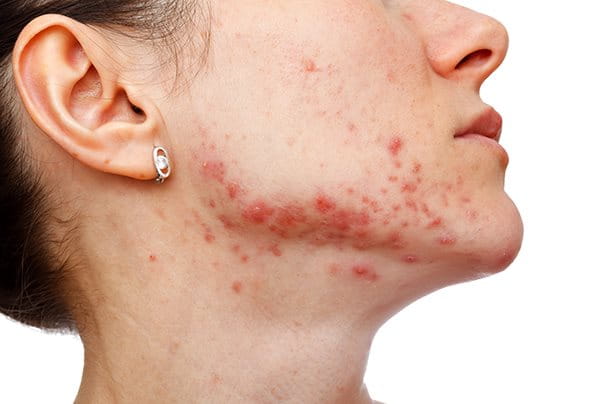

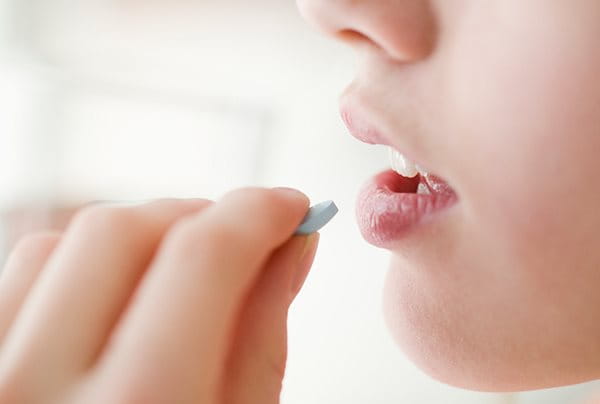
Sunlight can also trigger a particular type of acne known as Acne Aestivalis (more commonly known as Mallorca Acne). Acne Aestivalis occurs when UVA rays combine with the chemicals in certain skincare and sun protection products and trigger an allergic reaction. It typically effects women between 25 and 40 who experienced acne during puberty and you can read more about it in the different types of acne .
People with acne scars and acne marks (pigmentation issues caused by Post Inflammatory Hyperpigmentation or PIH) are particularly prone to further issues of hyperpigmentation. Excessive sun exposure and/or inappropriate sun protection can exacerbate acne-related hyperpigmentation.
Certain acne treatments and medications − e.g. Benzoyl Peroxide, Tretinoin, Adapalene and Azelaic Acid − also make skin more susceptible to sun damage and increase the need for appropriate sun protection. You can find out more in acne and medication .
You can read more about this subject in Does sun help acne or make it worse ?
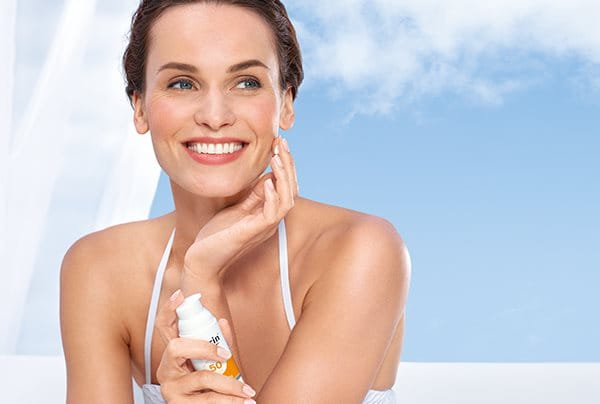
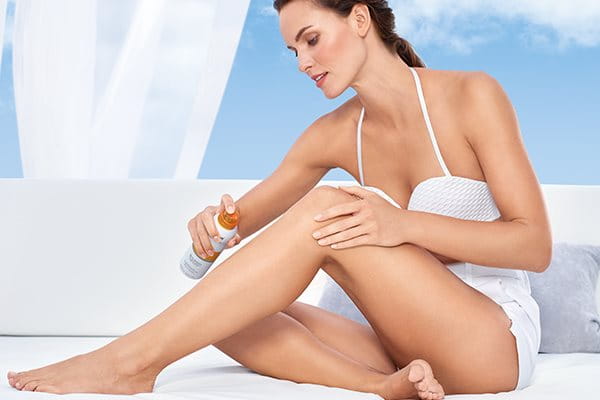
For oily/acne-prone facial skin
Eucerin Sun Gel-Cream Oil Control SPF 50+/30: Eucerin’s Advanced Spectral Technology gives skin prone to acne very high or high UVA/UVB protection and HEVIS light defense1. The ultra-light and non-comedogenic formula has a dry matt finish that gives skin a longlasting (up to 8h) anti-shine effect.
For oily/acne-prone skin on your body
Eucerin Sun Spray Transparent Sensitive Protect SPF 50/30 and Eucerin Sun Spray Transparent Dry Touch Sensitive Protect SPF 50/30: Eucerin’s Advanced Spectral Technology offers very high or high UVA/UVB protection and HEVIS light defense1. The dry touch formula also supports skin’s own DNA repair mechanism. Both absorb quickly and are non-greasy.
You can read more about how to minimize the risks of exposure, how to choose the right sun protection products for your skin and how best to apply them in Why do I need daily sun protection for my face ? and How should I protect my body from the sun?
If you are undergoing medical treatment be sure to practice ‘safe sun’: limit the time spent outdoors, avoid the sun during its most intense hours, wear protective clothing and wear a very high protection sun factor even on cloudy days.
- Meeting the highest standards for UVA and UVB protection as defined by Cosmetics Europe. The levels of UVA protection are higher than the EU requirement.
How can I protect my oily/acne-prone skin from the sun?
The best way to protect skin is to limit the time spent in the sun, avoid it during its most intense hours, wear protective clothing and apply a superior sun protection product that offers the level of protection that your skin needs. We also recommend that you use sun protection products that have been specially formulated for oily and acne-prone skin.
Choose products:
- with a lighter texture: this doesn’t mean you need to compromise on high protection)
- labelled ‘non-comedogenic’: this means they don’t contain ingredients that might block pores and trigger blemishes
- that actively help to address your skin concerns as well as to offer sun protection
- that have been specially formulated for oily and acne-prone skin and that are clinically and dermatologically proven to be suitable for your skin type.
The Eucerin Sun range includes several products that give oily and acne-prone skin the special sun protection it needs while also offering sebum-regulating Oil Control Technology with L-Carnitine to:
Our brand values

We deliver a holistic dermo-cosmetic approach to protect your skin, keep it healthy and radiant.

For over 100 years, we have dedicated ourselves to researching and innovating in the field of skin science. We believe in creating active ingredients and soothing formulas with high tolerability that work to help you live your life better each day.
